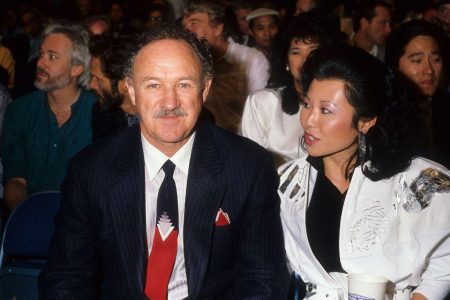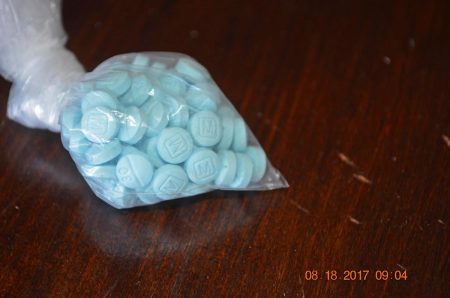The True Story Behind Netflix’s "Apple Cider Vinegar" and Its Connection to Belle Gibson and Jess Ainscough
A "True-ish" Story of Deception and Wellness Culture
Netflix’s latest series, Apple Cider Vinegar, is a gripping drama that blends fact and fiction to explore the rise and fall of a wellness empire built on lies. The show is loosely based on the real-life story of Belle Gibson, an Australian woman who fabricated a terminal brain cancer diagnosis to build a following in the wellness industry. Gibson’s deception not only fueled her own success but also intersected with the lives of others, including another wellness influencer who became a central character in the series. Apple Cider Vinegar is a fascinating yet disturbing look at the power of manipulation, the allure of wellness culture, and the consequences of false narratives.
Belle Gibson: The Woman Behind the Lie
At the heart of Apple Cider Vinegar is Belle Gibson, a charismatic and calculating figure played by actress Kaitlyn Dever. In real life, Belle Gibson (whose full name is Annabelle Natalie Gibson) captivated her audience with a harrowing story of survival. She claimed to have been diagnosed with terminal brain cancer in 2009 and said she had only weeks to live. However, Gibson never actually had cancer. Her lies became the foundation of her wellness brand, which included a popular nutrition app called The Whole Pantry. The app, which promoted healthy eating and alternative remedies, gained a massive following and even attracted the attention of major brands.
Gibson’s empire began to crumble in 2015 when journalists uncovered discrepancies in her claims. Not only did she fabricate her cancer diagnosis, but she also failed to donate the proceeds from her app to various charities as she had promised. When confronted, Gibson admitted that she had never had cancer, shocking her followers and the public alike. Her story is a chilling reminder of how easily deception can masquerade as truth, especially in the unregulated world of wellness.
Milla Blake: A Fictional Character with a Real-Life Inspiration
While Belle Gibson’s story is central to Apple Cider Vinegar, the series also introduces a fictional character named Milla Blake, played by Alycia Debnam-Carey. Milla is a young woman diagnosed with a rare form of cancer, undifferentiated pleomorphic sarcoma. Unlike Gibson, Milla is based on a real person: Australian wellness influencer Jess Ainscough, who passed away in 2015 at the age of 30. Ainscough was a prominent figure in the wellness community, advocating for alternative cancer treatments and sharing her journey through blogging, speaking engagements, and a book titled Make Peace with Your Plate.
In the series, Milla refuses conventional medical treatments, opting instead for alternative therapies like coffee enemas and a strict diet. Her choices are eerily reminiscent of Ainscough’s real-life decisions. Milla’s journey takes a tragic turn as her cancer worsens, and she eventually dies, leaving behind a devastated family and a shattered followership. Her story serves as a cautionary tale about the dangers of rejecting proven medical treatments in favor of unproven alternative methods. While Gibson’s lies were polished and deliberate, Milla’s narrative is raw and emotional, highlighting the complexities of belief and hope in the face of illness.
The Parallels Between Gibson and Ainscough
One of the most fascinating aspects of Apple Cider Vinegar is the way it weaves together the stories of Belle Gibson and Jess Ainscough, two women whose lives intersected both on and off screen. In the series, Milla Blake’s journey catches the attention of Belle Gibson, who becomes a voyeur of sorts, watching Milla’s rise and fall from afar. Gibson even attends Milla’s funeral, where she is seen crying loudly, a moment that mirrors real-life events. In reality, Gibson attended Ainscough’s funeral in 2015, sparking speculation about the nature of their relationship. While Ainscough’s loved ones have said that the two women were not close friends, their connection remains a haunting reminder of the shared themes of illness, deception, and the fragile line between truth and fiction.
The series also explores the broader cultural context that allowed both Gibson and Ainscough to thrive. In an era where social media has transformed individuals into brands, and wellness has become a multi-billion-dollar industry, Apple Cider Vinegar raises important questions about accountability, exploitation, and the human desire for connection. Gibson’s lies were enabled by a culture that celebrates positivity and resilience, often at the expense of critical thinking. Similarly, Ainscough’s decision to pursue alternative treatments was influenced by a belief system that equates illness with personal failure and health with moral virtue. Both stories reveal the darker side of the wellness movement, where hope and healing are often commodified.
The Consequences of False Narratives
The consequences of Belle Gibson’s lies are laid bare in Apple Cider Vinegar. Her deception not only damaged her reputation but also hurt the people who trusted her, including those who were inspired by her false cancer story. The series also doesn’t shy away from depicting the devastating impact of her actions on the real-life individuals she encountered, including Jess Ainscough. While Ainscough’s decisions were her own, the series suggests that the wellness community’s fixation on personal responsibility for health outcomes can be deeply harmful. By framing cancer as a challenge that can be overcome through sheer willpower and diet, figures like Ainscough inadvertently perpetuated a narrative that blames patients for their illnesses.
In the end, Apple Cider Vinegar is a powerful exploration of the human condition, blending elements of drama, tragedy, and social commentary. It challenges viewers to think critically about the stories we tell ourselves and the stories we consume. While the series is fictionalized, it remains deeply rooted in real events, offering a nuanced look at the lives of two women whose paths were forever intertwined by cancer, deception, and the endless pursuit of wellness.
The Real-Life Legacy of Jess Ainscough
Jess Ainscough’s story, as depicted in Apple Cider Vinegar, is both heartbreaking and thought-provoking. A vibrant and ambitious woman, Ainscough was diagnosed with epithelioid sarcoma at the age of 23. Her initial decision to pursue chemotherapy was later overshadowed by her embrace of alternative therapies, including Gerson Therapy, a controversial approach that involves strict dietary changes, coffee enemas, and other unproven methods. Ainscough’s choice to reject conventional medicine was deeply personal, but it also resonated with her growing audience, who saw her as a symbol of strength and resilience.
Ainscough’s journey was not without its challenges. Her mother, Sharyn, also battled cancer and passed away in 2013 after pursuing alternative treatments. Ainscough herself died two years later, just as her book and blog were gaining momentum. Her death was met with an outpouring of grief from her followers, many of whom had seen her as a source of inspiration. Yet, her legacy is complicated. While she empowered many people to take control of their health, her story also highlights the risks of rejecting proven medical treatments in favor of unproven methods.
Reflections on the Show and Its Real-Life Inspirations
Apple Cider Vinegar is more than just a dramatized version of real events; it is a reflection of our collective obsession with health, wellness, and the stories we tell ourselves about illness. The show challenges viewers to consider the ethical implications of profiting from false narratives and the dangers of oversimplifying complex medical issues. It also invites us to think about the human desire for connection and the ways in which vulnerability can be exploited in the digital age.
Ultimately, the series is a haunting reminder of the power of stories to shape our beliefs and behaviors. While Belle Gibson’s lies were deliberate and manipulative, Jess Ainscough’s story, as portrayed through Milla Blake, underscores the complexity of human decision-making in the face of uncertainty. Both women, in their own ways, remind us that the line between truth and fiction is often blurred, and that the consequences of that blurring can be profound.









